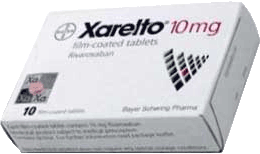This litigation has concluded and we are proud to report that our clients' claims have been successfully resolved. The amounts of all individual client recoveries are confidential, both by settlement agreement and by attorney-client privilege. MLG is no longer accepting cases involving this product.
Published on Monday, December 28, 2015 by Staff

Pharmaceutical companies use various offers of discounts and benefits to collect information from patients. The scope of the information collected varies and depends upon the particular program or benefit being offered. More importantly, through these programs, pharmaceutical companies are able to bypass the patient’s doctor and communicate directly with the patient. Disguised as providing “educational materials” and “helpful reminders,” these programs are a further extension of what is generally known as “direct-to-consumer” advertising by pharmaceutical companies (“DTC”).
Pervasive throughout all radio and television outlets, the Internet, social media, magazines, newspapers, billboards, brochures, and any other means available to communicate directly with consumers and patients (for example, on hanger covers provided by dry cleaners), DTC enables pharmaceutical companies to influence and intervene in the doctor-patient relationship. Worldwide, only the United States and New Zealand allow drug companies to engage in DTC advertising. All other countries prohibit such advertising preserving the doctor-patient relationship and decision-making.
Xarelto® provides an example of this practice. Through its Xarelto® “Care Path Support Program,” “Care Path Savings Card” and “Care 4 Today Mobile Health Manager,” Janssen Pharmaceuticals, the manufacturer of Xarelto®, provides financial incentives to induce patients to enroll in these programs. “Enrollment” generally means providing personal information to Janssen which it then uses to provide “educational materials” and “helpful reminders” to patients. It also means that the patient consents to the: (i) use of the information for a wide variety of purposes; and (ii) sharing of the information with other companies (“3rd parties”) with which Janssen does business.
For all such programs, It is important to read the “Privacy Policy” which governs the use of information submitted to drug companies before enrolling. If you are unsure of how your information will be used, ask questions and insist on meaningful answers.
This litigation has concluded and we are proud to report that our clients' claims have been successfully resolved. The amounts of all individual client recoveries are confidential, both by settlement agreement and by attorney-client privilege. MLG is no longer accepting cases involving this product.